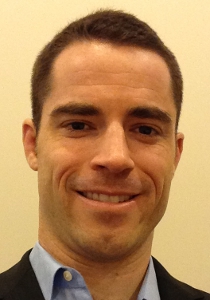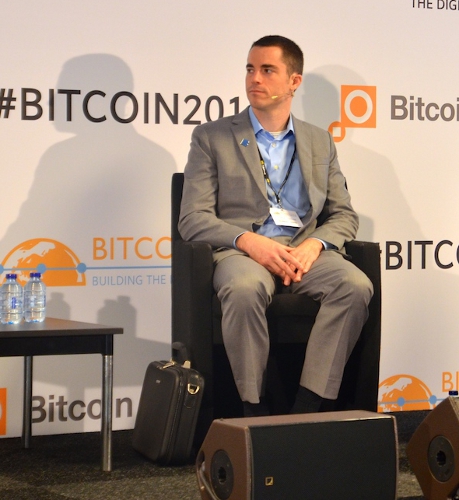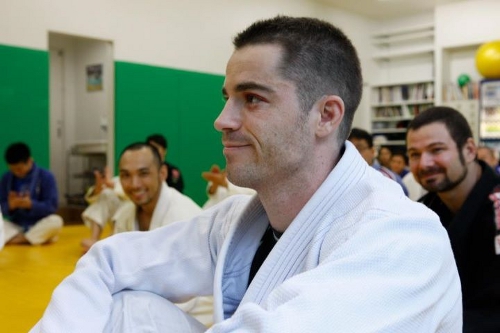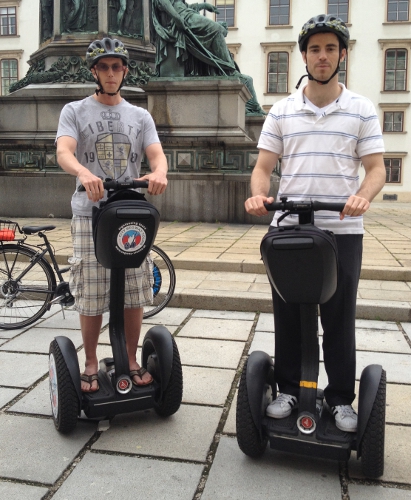- Why Did Bitcoin Evangelist Roger Ver Go To Prison?
- Are Large Bitcoin Holders At Risk Of Being Kidnapped?
- Can Libertarian Ideas Make The Economy Better?
Full Interview Audio

Personal Info
Hobbies and Interests:Bitcoin, bitcoin investing
Favourite Books:
- Man, Economy, and State: With Power and Market by Murray N. Rothbard
- The Law by Frederic Bastiat
- No Treason: The Constitution of No Authority by Lysander Spooner
Twitter: http://twitter.com/rogerkver
Facebook: https://www.facebook.com/rogerkver
LinkedIn: http://jp.linkedin.com/in/rogerver
Website: http://rogerver.com/
Interview Highlights
This is a condensed, lightly edited transcript of an audio interview. The full audio is available and highly recommended.
Adrian Bye: Today I’m here with Roger Ver, who is called Bitcoin Jesus. He is the owner of MemoryDealers, and he is actually in Japan right now. He has funded a lot of important Bitcoin startups and has been very active in the Bitcoin world. He is a controversial figure because he is certainly known for speaking his mind. Roger, thanks for joining us.
Roger Ver: My pleasure. Thank you, Adrian.
Adrian Bye: I think your story is an interesting one. Why don’t you start off by telling us a little bit about your background?
Roger Ver: I grew up in Silicon Valley and I’ve been around computers all my life. Towards the end of junior high or early in high school I started studying economics and found it just incredibly interesting and read pretty much every book I could get my hands on at the time. That’s part of why I became so excited when I found Bitcoin. I had a computer science background to understand the concepts of it from the technical side, and then I had the economics background to understand it from the economics side. Bitcoin is computer science and economics coming together.
Adrian Bye: You studied computer science?
Roger Ver: Actually, I started selling computer components when I was in college. I quickly discovered that I can make a lot more money selling computer parts than I would by finishing college and going to work for some company. So I quit school and started selling computer components full time. That’s how my company MemoryDealers.com was born. Silicon Valley was the right place to be doing that sort of thing and it worked out really well to this very day.
Adrian Bye: You had an interesting run-in with the government that I guess changed your perspective on things a bit.

Roger Ver: Yes. During the study of economics I realized that the more freedom a place has the higher standard of living everybody has and the more material wealth can be produced to support all those people. It became so incredibly clear that the lower the taxes are and the less government control over the economy the better everybody’s life will be. So I felt the rest of the world should know about this too. In the year 2000 I was inspired to run for California State Assembly. I ran as the Libertarian candidate and I was invited to debate the Republican and Democratic candidates at San Jose State University. In that debate, which was just a few years after the big incident in Waco, Texas, in which the government basically murdered a bunch of kids, I called the ATF a bunch of jack booted thugs and murderers. In the audience were some plain clothed ATF agents that really didn’t like the things that this twenty-year old kid was saying about them. They started looking into me to figure out what they could prosecute me for. And in a country like the United States, and just about any country around the world, there are so many rules and laws and regulations that they can prosecute anybody at any time for any reason. I wound up being the only person in the entire nation to be prosecuted for selling a product called the Pest Control Report 2000, basically a firecracker used by farmers to scare birds out of their corn fields. The company that I was purchasing them from had no permit, the company manufacturing them had no permit. Cabelas Sporting Goods Catalog, the number one sporting goods catalog in the entire United States was selling the exact same product at the same time with no permit. Dozens of other resellers were selling them on eBay. I was very clearly guilty of the laws written. I sold explosives without a permit. Even though the people I was buying them from had no permit, the manufacturer had no permit, nobody else had a permit, they only prosecuted me. The U.S. prosecution attorney told me that if I didn’t sign a plea agreement he would send me to jail for seven or eight years. If I signed a plea agreement I would do between eight months and fourteen months. Eight months to fourteen months sounds a lot better than seven or eight years, so I signed a plea agreement. I remember very clearly the morning I was sentenced the judge asked me, "Did anybody threaten or coerce you in any way to sign this plea agreement?" I told the judge, "Yes, absolutely." The judge’s eyes got really big, and he said, "What do you mean?" I said, "The U.S. attorney told me that if I didn’t sign the plea agreement he would send me to jail for seven or eight years, so I signed the plea agreement." The judge told me, "That’s not what we mean", and I told him very genuinely, "If that’s not what you mean by being threatened or coerced I must not understand what it means to be threatened or coerced." The judge wound up sentencing me to ten months in federal prison. I served my time in federal prison.
The way I got into trouble was by trying to make the world a better place. Free markets empower everybody. They help the poor and the rich. They help everybody all over the world and I wanted to help make the world a better place. And to thank me for my efforts I wound up being sent to federal prison and then I had three years of harassment from the U.S. probation department. The day my probation ended I left the United States and I knew I was never going to live there ever again. Earlier this year I actually renounced my U.S. citizenship. I want absolutely nothing to do with those people. All these Americans pay all these tax dollars and then the U.S. government uses all this money to buy guns and arms and tanks and airplanes and fancy drones and then they go around dropping bombs on people all over the world, starting wars all over the world and murdering people all over the world. As a result of the Iraqi government’s stupid policies the U.S. Government imposed sanctions on the country which caused more than half a million children, who have no say whatsoever, to literally be starved to death. I want absolutely nothing to do with anybody that would think that it’s okay to starve to death children because the government in the country that those kids happen to be living in did some things that the government of the United States don’t like. Part of what attracted me to Bitcoin so much is a lot of those bombs are being paid for by inflation. The U.S. government can print as much money as they want to buy these guns and bombs and tanks. When I discovered Bitcoin and realized that the supply of Bitcoin was limited and it can’t just be created out of thin air, I realized that if the entire world starts using Bitcoin, governments are going to lose most of their ability to fund their wars.
Adrian Bye: One of the things that governments give us, or at least we like to think, is some level of security. You are a pretty big Bitcoin holder. That means you have a high net worth and you have a lot of that net worth in Bitcoin. Your situation is different to the standard billionaire because you can essentially be held hostage and be put in a position where it is your money or your life. You already had some attacks. How do you handle that? Do you always travel with a security guard?
Roger Ver: I had a hacker that tried to extort twenty thousand dollars worth of Bitcoin from me earlier this year. Rather than paying the extortionist the extortion money I offered the same amount of money as a bounty leading to that person’s arrest and conviction. In regards to government issued security, I don’t think they provide any of that. If anything, they make the world a less safe place.
Adrian Bye: So what do you do if you travel in Russia sometime and you get picked up by some guys of the Russian mafia who chop off your little finger and say we’re gonna keep chopping until you hand over all your Bitcoin holdings?
Roger Ver: If I had access to the bitcoins and someone is right there chopping my fingers off they would probably receive the bitcoins. That’s going to be a real problem in the future with things like Bitcoin. It makes it easier for people to do that sort of thing. But I don’t travel with my bitcoins with me. They are offline, secure and it takes quite a bit of effort to get to them. So even if someone were to kidnap me at an airport or coffee shop they wouldn’t be able to get very much money at all. My general policy is if there is not a gun right there to my head, anytime anybody tries to extort anything from me I’m much more likely to put the same amount of money as a bounty on arresting and prosecuting that person. In fact, I’m actually in the process of setting up a website that’s going to help with that exact sort of thing. And it’ll even be able to influence police officers to do the right thing and actually do their jobs. So I’m pretty excited about that new project I’m working on. It will be out maybe within another week or so.

Adrian Bye: What we are seeing now is that those who are good at business have an exponential advantage over everybody else. I think that’s going to increase just because of the amount of leverage you can get from having a good idea is increasing. I suspect we are reaching an endpoint where capitalism may not continue to work, simply because it won’t be able to provide for the whole population, to provide value. What do you think about that?
Roger Ver: Let’s name some really wealthy people in the world, like Bill Gates and Steve Jobs and people like that. These people made an absolute fortune of money, but because of Steve Jobs we all have iPhones that we can use, and that makes even poor people’s lives better. Bill Gates created a new operating system that people all over the world use on computers, and certainly that’s made people’s lives better. These computers and softwares are being used in facilitating commerce around the world. Even if you are not a computer user, things that you buy in daily life and the things that you consume somehow ship to where you are. It improves lives for everybody on the entire planet. The fact that Bill Gates or Steve Jobs or whoever has this huge amount of money doesn’t mean that you or I or some poor person in some country has less. The overall economic pie, and the amount of wealth that’s been created in the world is not a fixed amount. That pie is increasing every single day as people are producing new goods for people to use and consume and enjoy. The fact that some people come along and figure out how to allocate resources in a way that creates a lot of wealth for them, that’s a good thing. In the free market every time anybody buys anything from anybody they are doing it because they value what they’re receiving more than what they are giving up. So after the trade happens both people have more than what they had to begin with. It’s only in governments in which they force someone to pay against their will. The more government you have that means the more coercion, the more times people have to pay for things they don’t necessarily feel make them better off. I’m not interested in paying for wars or bombs to be dropped on people all over the world, and I think most people wouldn’t want to pay for those sorts of things. Yet governments are going around forcing people to do that.
Adrian Bye: There is a guy named Nick Szabo. What do you think of him and what do you know about him?
Roger Ver: A lot of people think he could potentially be the creator of Bitcoin. Other than that I don’t know much. But whoever the real Satoshi is I hope he gets whatever it is that he wants out of life. He deserves it and I think he’ll go down in history like Thomas Edison and Isaac Newton when people just realize how amazing this block chain technology that he invented really is.
Adrian Bye: I would say Edison would be small by comparison. I would put it more in the realm of Einstein. Einstein’s discoveries enabled a whole lot of more discoveries. Newton and Einstein enabled entire new ages with what they produced, and I think that Satoshi has given us that with Bitcoin.
Roger Ver: That’s a great point, I agree with you.

Adrian Bye: You invested in a lot of startups, Blockchain is one.
Roger Ver: Blockchain is probably the most famous one. I was kind of fortunate because I heard about Bitcoin early on and started making my investment in the Bitcoin space in 2011. Blockchain is the world’s most popular Bitcoin wallet, it’s the number one Bitcoin website in the world. We have a lot of new products and features that we’re going to launch very shortly that I think you’re going to like. There are also some great apps for iPhone and Android and right there in your browser. You can send and receive any amount of money from anyone on the planet basically for free. It’s impossible for anyone to freeze your account, to seize your bitcoins, to control it in any way, and even if the entire website goes offline, your bitcoins are still safe and you’ll still be able to access them. That’s a pretty powerful tool that’s available right there on Blockchain.com.
Adrian Bye: What do you think about Coinapult?
Roger Ver: Coinapult is doing all sorts of great things. Some people are worried about Bitcoin’s volatility. Coinapult is offering a service called LOCKS, where you can lock in the value of your bitcoins’ today value into US dollars, Euros, and I believe British Pounds. If you have a thousand Euros worth of bitcoins today, you can lock it in at that price and then a month later when you’re ready to spend them, regardless of what Bitcoin has done in the meantime, you’ll still have a thousand euros worth of bitcoins to spend. I think lots of people that are scared of the volatility will find that incredibly useful.
It’s really kind of telling and sad just how difficult it is to do business in the U.S. Because of all the stupid regulations, government people, and politicians, all these really smart people from America are leaving. The Coinapult team moved down to Panama because it’s easier to do business in Panama than it is in the U.S. People are leaving the U.S. in droves because it is more favorable to do business in other places than the U.S. The U.S. government is really doing a good job of killing the geese that lay the golden eggs. And the goose that lays the golden egg is a free market business environment in which people can start any sort of business without having to ask for permission. Those days have disappeared in the U.S. and the U.S. is getting worse and worse as regards to that. A hundred years ago America was the freest place in the world and it was the place everybody wanted to go and start a business. Because it was so free it became the wealthiest nation in the world. Now the politicians are ruining it for everybody by controlling everything and they destroyed that free market environment.
Adrian Bye: Is there anything that you’d like to talk about?
Roger Ver: Yes. For anybody who is listening and doesn’t know much about Bitcoin google it right now. Google Bitcoin and read all about it. It really is, without exaggerating, one of the most important inventions ever, in the history of mankind. It’s right up there on par with the importance of the inventions of the Internet or electricity or the transistor. Bitcoin is really going to change lives of everybody on the entire planet. So it’s worth your time to google it right now and get involved in. It’s not just about money, it’s an entire platform that’s going to allow all sorts of amazing additional things to be built on top of it. So spend some time and Google it and read all about it right now. It’s worth your time learning about it.










